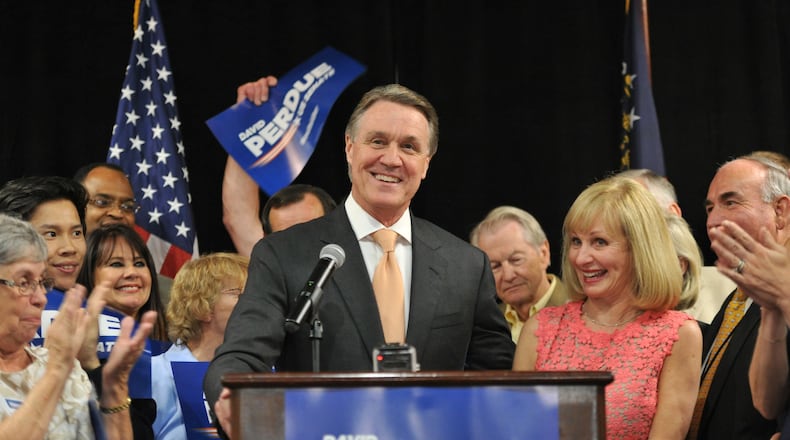David Perdue's stunning victory over Rep. Jack Kingston was both a rebuke to Georgia's political establishment and a reminder that November will be a very unconventional race. Here are five factors that played into Perdue's upset victory:
Metro Atlanta's Perdue support offset south Georgia's Kingston backing. While Kingston held onto his big margins in south Georgia, Perdue more than wiped him out with big showings in populous metro Atlanta and other urban areas across the state. Perdue's camp was ecstatic that Kingston's net margin over Perdue in Savannah's Chatham County was 12,000 - close to what they expected. If Kingston landed the same vote totals in coastal Georgia he tallied during the May primary, he'd be waking up to a different headline today.
A slow windup and powerful close. Perdue's camp went up with its infamous "Babies" TV ads early in the primary to define the race. But in the nine-week runoff - the longest in state history - they largely held their fire until the final weeks before the contest. Perdue's aides said that helped them refuel and better target Kingston. As we've noted, Perdue and his allies were vastly outspent by Kingston in metro Atlanta, but spent far more than him elsewhere in the state.
An effective grassroots network. Perdue advisers said it never got much media attention, but they built a formidable network of activists across the state who tapped an anti-incumbent streak to boost their candidate. That foundation is still intact, they say, and will come in handy against Nunn.
The Chamber was both boon and burden. The closing days back-and-forth involved the U.S. Chamber's heavy investment in the race on Kingston's behalf, with a flood of positive ads (and a last-minute negative that few voters likely saw). Perdue used it as evidence that Kingston secretly supported "amnesty." Talk radio host Erick Erickson tweeted that he had trouble convincing many friends to vote Kingston because of the Chamber's backing.
Very few people like Congress. Kingston had to own 22 years in Congress. As he put it Tuesday: "You know, people are very frustrated with Washington, D.C. and I think that was a big hurdle. And my opponent capitalized on that – as he should."
About the Author
The Latest
Featured



